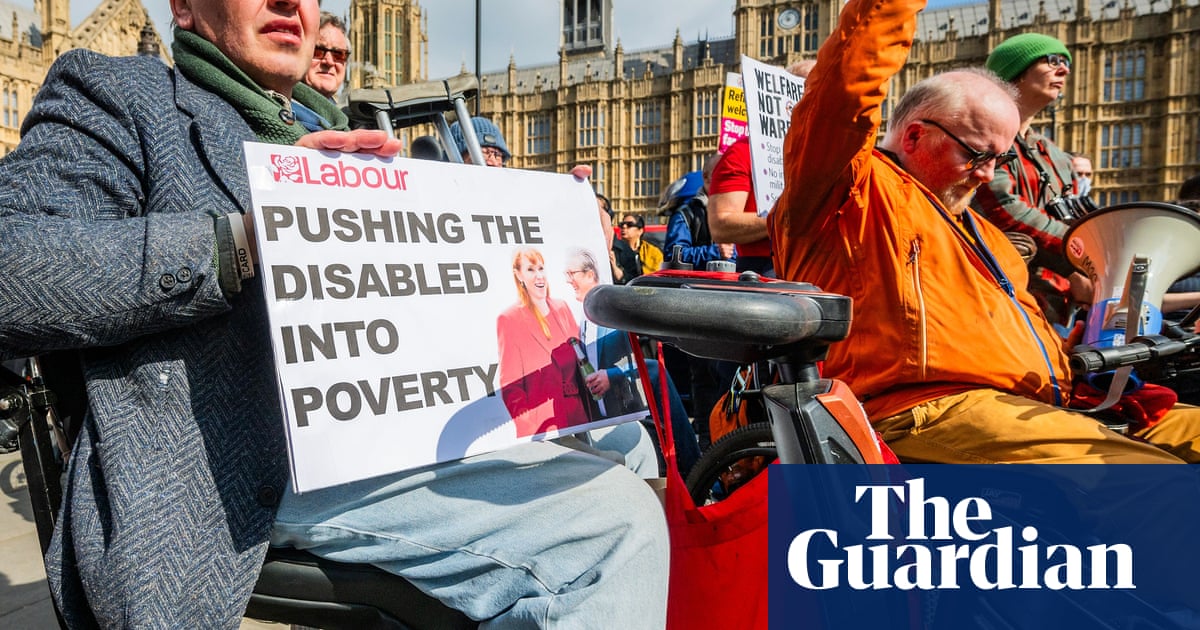More than 150,000 people could still be pushed into poverty by Downing Street’s welfare measures despite significant concessions to rebel MPs to protect those already on the benefits, according to the government’s impact assessment.
It comes as ministers prepare to put forward the full package of changes ahead of a vote on Tuesday in which about 50LabourMPs are still likely to oppose the bill.
In an impact assessment written after the changes made in response to a threatened rebellion by more than 120 Labour MPs, officials said there would now be a “negligible” impact on child poverty, which had been one of the key concerns in the original measures.
But it found that an additional 150,000 people could be pushed into relative poverty by 2030 because of changes that would affect future claimants. The original cuts would have pushed an additional 250,000 into poverty, according to the previous assessment.
The work and pensions secretary, Liz Kendall, will set out the changes to MPs later. A number of key rebels – including the Treasury select committee chair, Meg Hillier – have been won over by promises to exempt current disability claimants from the changes and to increase the health element of universal credit in line with inflation.
No 10 said the measures were still essential to change the system and to prevent the welfare bill from escalating – though the changes promised last week will cost the Treasury an extra £3bn.
Keir Starmer’s spokesperson said: “The broken welfare system we inherited is failing people every single day. It traps millions. It tells them the only way to get help is to declare they will never work again, and then abandons them with no help, no opportunity no dignity, and we can’t accept that.
“For too long, meaningful reform to a failing system has been duck or delay. [The government] can’t go on ignoring a system that’s failing people on all accounts, that’s not fair, and that’s why we will act.”
He said the poverty modelling was “subject to uncertainty” and would not take into account the extra investment in health and social care.
“We’re investing an additional £1bn a year by the end of the decade to help people with disabilities in long-term health conditions into jobs and that support will directly help people move into work and become financially independent.”
The spokesperson added that the government was confident the measures affecting future claimants were legal, amid claims it would create a “two-tier” system.
“It’s not unusual for systems to operate at different levels, but yes, we’re entirely confident it will be legal,” he said.
A number of MPs including the former government whip Vicky Foxcroft have said that even with the changes they are unlikely to support the bill. No 10 did not explicitly rule out further concessions. Party whips are still holding conversations with MPs.
Starmer’s spokesperson said: “There’s broad consensus that we have to reform this broken system and, as you’d expect, the government is continuing to engage closely with parliamentary colleagues about the bill and the changes it will bring.”
The Department for Work and Pensions will on Monday publish the terms of reference for a review of personal independence payment (Pip) to be undertaken by the welfare minister, Stephen Timms, which the government says will be “co-produced” with disabled people.
It will set out £300m of employment support to be brought forward over the next three years, and publish draft regulations on the “right to try” – allowing disabled people to try work without risking their financial support.
Starmer’s spokesperson insisted it would be a genuine co-production rather than a consultation. “It will be co-produced with disabled people, the organisations that represent them, experts and members of parliament. This approach ensures that the voices of those with lived experience are at the heart of shaping a system that develops better outcomes and better experiences for them.”
